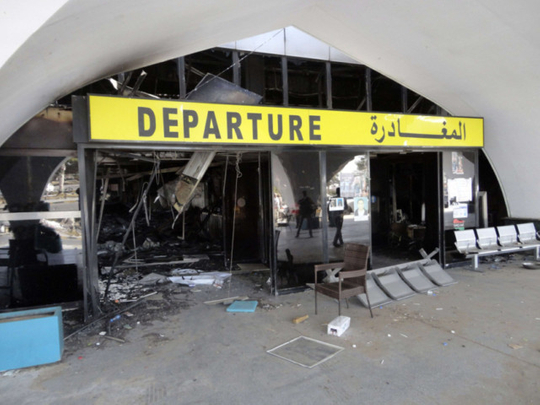
The most recently elected Libyan parliament, the Council of Representatives (COR), immediately found itself facing more internal disputes with further divergences from different political factions, such as the Muslim Brotherhood and Libya Shield backing of the General National Congress (the previous governing authority) and opponents of fundamentalism such as General Heftar and his allies. Couple this political disconnect with the intensified unrest we have seen over the past number of weeks, which has gone as far as the destruction of Tripoli’s airport and airstrikes in Tripoli.
If the past year has derailed Libyan efforts for short-term progress, let alone long-term national reforms and development strategies, then the persistence of the current violence will tip the carriage over completely.
The most immediate challenges faced by the COR is to strengthen its legitimacy and to restore law and order to the country, enact balanced decrees and decisions that would enforce fair national laws and not generalise or give preference to anybody. Needless to add, the current tensions have further displaced a greater number of people on top of the large numbers already displaced or exiled before the COR came to power.
The COR will also face the effect of the huge drain of the Libyan economy caused by ill-studied and ill-executed decisions undertaken from February 2011 to the present date. In addition, the effect of declined security that has pushed the exit of foreign employees of the State, damaging proficiency across all State sectors.
The other elephant in the room is the virtually unrestricted access in and out of Libya’s borders. This is evidenced in the notably large increase in the number of refugees reaching European borders through Libya due to reduced policing. Furthermore, there has been a bewildering access of internationally known and identified terrorists to Libya from all ports and borders without restriction. The new parliament will have to convince the International community to work and co-operate to identify, prevent entry and detain these fundamentalist criminals. If Libya becomes a haven for extremist groups, this would inevitably spill into Africa and Europe, which is perhaps the most urgent incentive for the West to act quickly.
When the international community considered itself part of what was happening in Libya in 2011, the justification for North Atlantic Treaty Organisation (Nato) intervention was to protect civilian life. Now in 2014, the present condition in Libya has left civilians utterly unprotected and without security. As the army and police department are frankly ineffective, it is imperative for international authorities to ensure the functioning statehood of Libya.
- Abdullah Elneihum is a Libyan official based in London.








